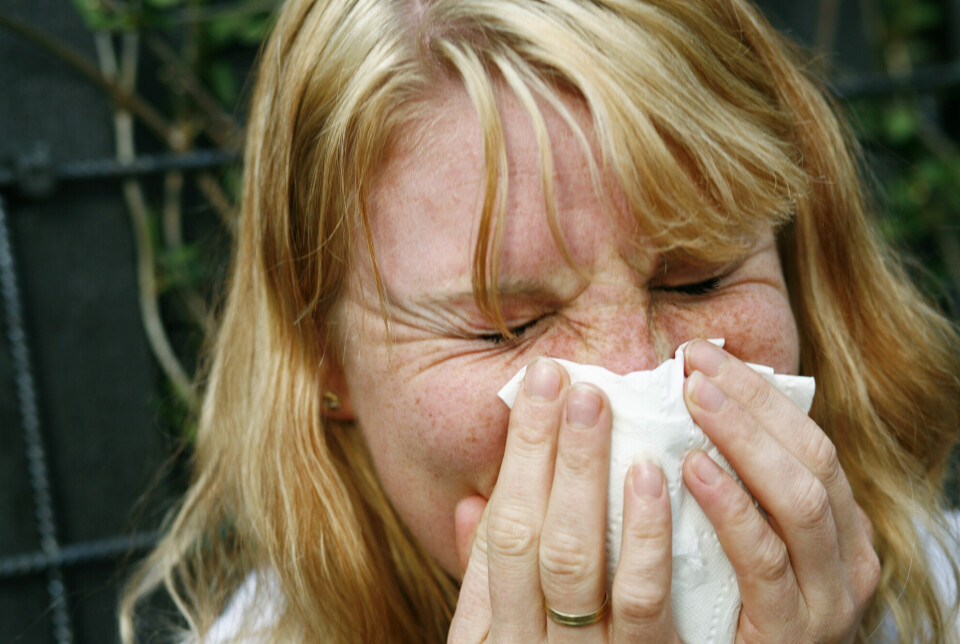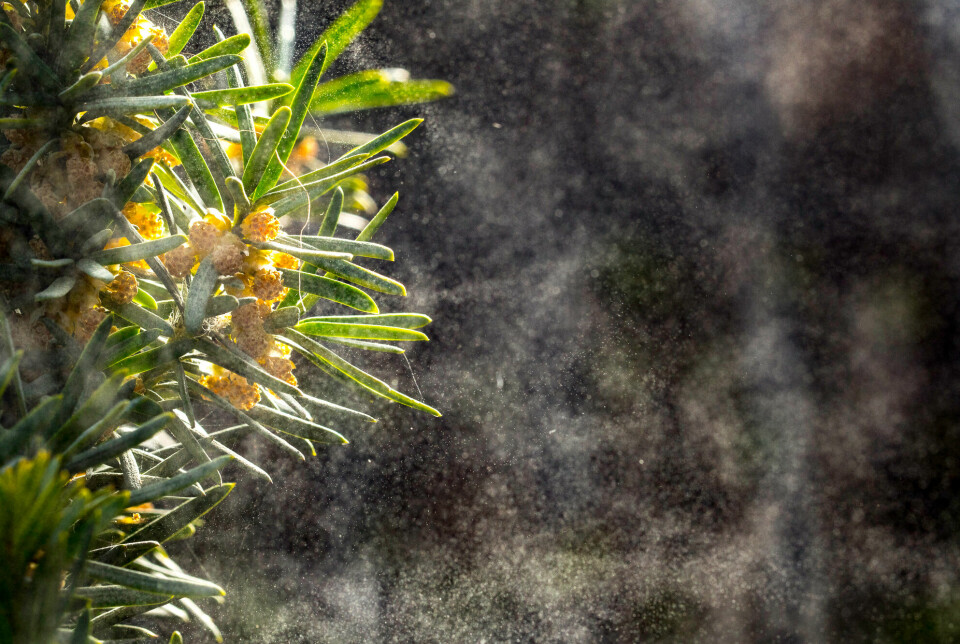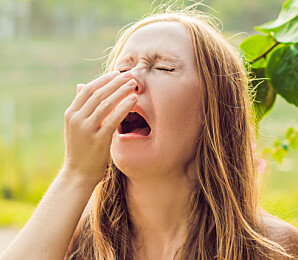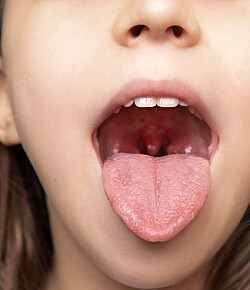
Why are some people allergic to pollen, and what helps?
ASK A RESEARCHER: Around 25 per cent of Norway's population has a pollen allergy, according to one professor. Why are some people allergic to pollen, while others are not?
Spring brings blooming flowers and trees. But for people who struggle with pollen allergies, those flowers may bring on symptoms such as sneezing, runny nose and itchy eyes.
“Well over one million Norwegians pick up prescription allergy medicines every year,” says Anna Bistrup, a senior adviser for health and public relations at the Norwegian Asthma and Allergy Association (NAAF).
“That’s a really high number, and we know that many of these people are allergic to pollen,” she says.
That figure does not include those who buy over-the-counter allergy medicines.
Pollen allergies can have a significant impact on the quality of life for some allergy sufferers. But why are some people are allergic to pollen, while others are not?
The immune system thinks pollen is dangerous
Pollen allergy is the most common allergy type. It typically causes symptoms in spring and summer. Pollen itself is not dangerous, but our immune system doesn’t know that.
“When you are allergic, the immune system overreacts by making antibodies against something that is not really dangerous. Your immune system identifies the allergen as something dangerous, even if it is not, and initiates an ‘immune response’, where the body produces histamines, among other things. Those are what cause the allergic symptoms,” Bistrup said.
There is also a higher risk of developing allergies if one or both parents have allergies.
“We can say that if neither parent of a child has allergies, then the chance that the child will develop allergies is just under 20 per cent. If one of the parents has allergies, the risk increases to 45 per cent. If both parents have allergies, there is an 80 per cent chance that the child will also have allergies,” says Sverre Steinsvåg, a chief physician in the ear-nose-throat department at Sørlandet Hospital and Haukeland University Hospital and professor at the University of Bergen.

Lifestyle disease
Steinsvåg also highlights the way we live as a factor in why some people develop allergies.
“We now live in a manner that means that we are much less exposed to microorganisms, especially bacteria. For example, we purify our water, heat milk and use antibiotics early in life. These factors mean that we are no longer exposed to microorganisms, and in concert with that, the incidence of allergies has increased,” he says.
In many ways, he says, pollen allergies are a lifestyle disease. We have chosen to live in a way where bacteria are less of a part of our lives.
A lot of time indoors protects less against allergies
Another factor that plays into this trend is that people spend much less time outdoors than they once did.
“Now to a much greater extent than before, we do everything, from homework to play, in front of screens. The consequence of that is that we spend much more time indoors and in houses. Then we go outside and are exposed to everything from food allergens and pollen allergens to animal allergens. The incidence of allergies has increased as a result,” Steinsvåg says.
He also points out that we are exposed to less sun when we are indoors, which can mean that we have less protection against allergies.
“Vitamin D is very protective against allergies, so when we don't get sun, we don’t make much vitamin D, so we have less protection against allergies,” says Steinsvåg.

One in four Norwegians has a pollen allergy
Around 25 per cent of Norway's population has a pollen allergy, Steinsvåg said.
“There is no difference when it comes to gender, but this is typically a disease for slightly older children and young adults. Many people will ‘grow out of it’, but certainly not all. We also see major pollen problems in mature adults, but it seems to be a bigger problem for young adults,” he says.
Most people with pollen allergies in Norway struggle with birch and grass pollen. Bistrup says that 20 per cent of people who are allergic to birch also react to other types of pollen from tree species such as alder, hazel and willow.
Pollen allergy symptoms typically include a runny or stuffy nose, itchy eyes, red and swollen eyes and itchy mouth. Bistrup also says that some people can have an allergic asthma reaction during the pollen season, which creates a reaction in the lungs. Many people also get headaches and feel ill.
The most allergic individuals
Some people are more allergic than others. Bistrup says allergies span a large spectrum.
“There are some who are just a little itchy and find that it will be fine. Other people become quite unwell and feel that the allergy affects their everyday life throughout the season. There are also people who have to travel to another area where there is less pollen or travel abroad to get a break from their allergic problems,” she says.
There is no simple explanation as to why some people are more allergic than others, but Bistrup says that the answer relates to you as an individual, your body and your immune system.
Cross allergy and other allergies
If a person is allergic to one thing, it can be easy to think that person has other allergies as well. Do people with pollen allergies have a greater risk of developing other allergies, such as to certain foods?
“Pollen allergies are very common and most sufferers don’t have other allergies, but there can be respiratory allergens. We distinguish between food allergens, respiratory allergens and contact allergens. Respiratory allergens are things like pollen, mould, fur animals and mites. These are allergens that spread in the air. Pollen allergy is a respiratory allergy that is different from a food allergy,” Bistrup says.
People can also develop what is called a ‘cross allergy’. Bistrup says that some pollen allergy sufferers can experience mild but unpleasant reactions after eating certain foods, such as raw fruit, vegetables, spices or nuts. But this shouldn’t be confused with a food allergy, she said.
Cross allergies occur when the protein in the food you eat is similar to the pollen protein you are allergic to. This overreaction is generated by the immune system, which causes problems and symptoms such as itching and irritation in the mouth.

Symptoms vary from season to season
Sometimes pollen allergy sufferers may find that they were more or less allergic in the previous season. Bistrup says this is due to how the pollen spreads.
“This year, for example, it is expected that the birch will spread more pollen than it did last year. In certain years, certain trees and grasses release more pollen, which results in more exposure,” she said.
Bistrup also says that other factors can play a role. If, for example, someone with pollen allergies is ill due to something else during pollen season, they may have a stronger reaction to the pollen.
Allergy vaccination may be an alternative
Bistrup says that it is important to remember that there treatments beyond just allergy pills.
“There are allergy-specific nasal sprays that contain antihistamines. There are also prescription nasal sprays that contain cortisone, which helps to dampen the inflammatory reaction in the mucus membranes in the nose,” she said.
If a person with pollen allergies has a lot of problems and normal medicines don't work as well as they would like, it is also possible to ask your doctor about the possibility of allergy vaccinations.
Steinsvåg says that far too few are offered allergy vaccinations in Norway today.
“It appears that too few patients are aware of this treatment, so they don’t ask their doctor about it. There also appear to be too few doctors who know how effective this treatment can be. So we have a major job to here to inform people, which we do as best we can,” he says.
Steinsvåg says that researchers have reliable figures that show that people who have gone through a pollen vaccination scheme have very good outcomes from the treatment.
Steinsvåg says the only way to possibly cure pollen allergies is pollen vaccination.
How to deal with pollen allergy
So what can allergy sufferers do to get through this year's season?
Bistrup says that it’s important to prepare for allergies before the spread of pollen starts. She recommends that people check out the Norwegian Asthma and Allergy Association's national pollen warning and pollen calendar. Other countries likely have similar associations with this kind of information. These tools can be used to monitor the approximate start of the pollen season.
Steinsvåg says the most important thing is to avoid spending time in areas where there is a lot of pollen. That’s easier said than done, since pollen can spread over long distances.
It is also important to use allergy medicines in the correct way. They should be used daily during the peak pollen period, in spite of whether it’s raining or snowing, or if the symptoms last less than one day. The recommendation is that people should use these medicines throughout the pollen season. If this does not work, Steinsvåg recommends allergy vaccination as an alternative.
Translated by Nancy Bazilchuk
———
Read the Norwegian version of this article at forskning.no




































